- Home
- Cutting Firewood
- Firewood Permits
Firewood Permits
This post may contain affiliate links so I earn a commission.
Depending on where you live, firewood permits can be a well-kept secret.
Not many people talk about them, but they do exist in some states.
Here's the problem, a lot of people have an interest in burning firewood and feel comfortable cutting it on their own, but don't have access to the trees.
Not everyone has land of their own or a buddy who gives you the green light to come over and cut down some trees.
One of the benefits of burning firewood is the money you save.
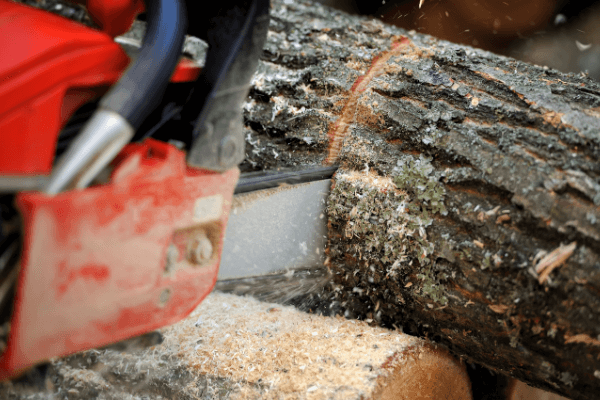
Buying firewood from someone else can drastically reduce the money you save by burning firewood.
So what do you do?
Depending on where you live, local government agencies that oversee public lands may issue firewood permits.
For example, the Department of Natural Resources or USDA Forest Service in the state of Michigan both issue firewood permits.
The permits can be purchased from a local office, and firewood can be harvested during specific times of the year.
Such agencies provide limited openings for the public to cut firewood in approved areas on state forest lands where the right cut trees are left at timber harvest locations.
Buyers of forest land timber use most of the branches left after harvesting trees, so keep in mind that there are limited opportunities for collecting personal firewood.
Types Of Permits and Related Fees
The price of permits varies depending on the type of firewood harvested and where you live.
However, here are some of the most common types of firewood permits:
- Free Personal Use Permits: These permits allow cutting a specified amount of down and dead wood in specified areas at no cost. There are not always free-use wood areas authorized, so you will need to regularly check with your local forest authority to see if one presently exists.
- Personal Use Paid Permits: These are permits that allow the cutting of dead standing or down dead trees that meet specific criteria in specified areas at a considerably low cost. There is always a specified minimum purchase allowed for paid permits.
- Ceremonial Permits: These permits allow ethnic members to collect medicinal and ceremonial plants.
- Green Wood Permits: Sometimes, your local forest authority occasionally offers green wood permits to the public.
- Commercial Permits: These permits allow the collection of firewood to sell to make profits. Personal Use Paid Permits are not permitted to be used to collect firewood for commercial purposes. You can inquire with your local forest authority for information about any commercial locations that might exist.
Firewood is only to be gathered or cut in areas specified on your permit.
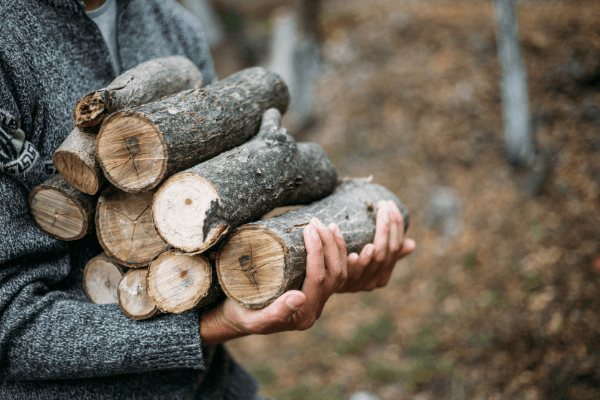
The amount of firewood collected must be documented on your permit, and the suitable number of load tickets must be recorded before you leave the cutting or collection area.
How To Apply
Keep an eye on the website of your local forest authority.
Also, you can visit the office of your local forest authority.
During the application process, you should choose the area you are interested in and provide the required information.
Firewood Permits - Know The Rules
Just because you have a permit doesn't mean you can just go out and cut firewood anywhere.
Each agency or area of land will have its own rules and requirements.
For example, can you cut dead standing trees or just trees that are already on the ground?
Is this a closed area?
Do you have a map?
To enjoy this privilege, you should be committed to abiding by a number of rules outlined in your permit. Each permit holder should:
- Carry their permit and associated maps at all times when they want to harvest firewood.
- Read and understand the conditions of their permit before signing. Conditions vary among regions.
- Produce their permit at the request of a peace officer, conservation officer, or natural resource officer.
Cutting firewood without a permit might result in charges and confiscation of the firewood.
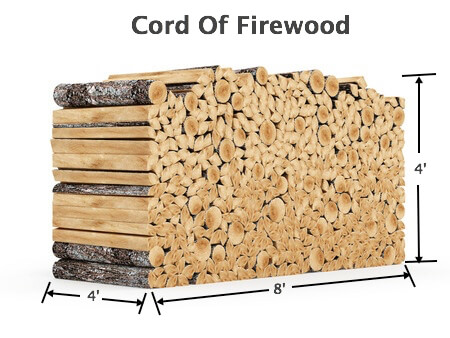
Chainsaw restrictions might apply depending on your local laws.
Know your firewood measurements.
Typically, if you have a permit, you can take a specific amount of firewood, which is measured by the cord, or a 4' wide x 4' high x 8' long stack, totaling 128 cubic feet.
You will need to document the amount of wood you have taken from the land and have that documentation available upon request.
You should follow your permit carefully for what and where to cut and collect as stumps, downed wood, and snags can be crucial habitats for wildlife that the agencies issuing permits manage.
Be prepared to get some exercise!
It's public land, so you can't just drive through the woods to park next to the wood you cut up.
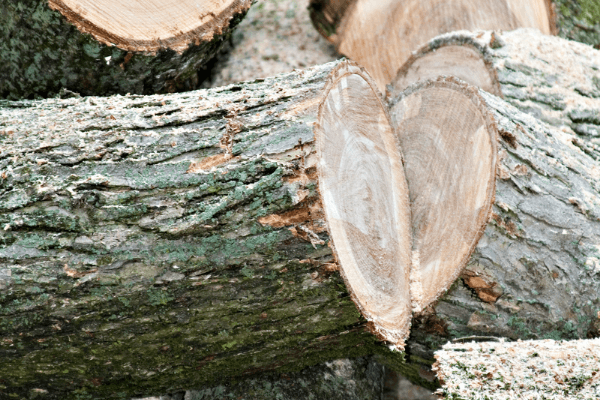
It's not uncommon to carry the wood a long way, so bring a firewood cart to help you out.
Moving firewood can spread diseases and invasive species.
Forests are threatened by invasive species that can damage trees.
Transporting firewood from one region to another increases the risk of spreading pests, fungi, and diseases.
Plan to burn your firewood in the region from where you buy or collect it.
Keep An Eye Out
Generally, when firewood season (that's what we call it) opens up around my house, people are quick to react.
Everyone wants to be the first one to get the firewood that's close to the road....the easy stuff.
So don't wait too long before you begin your quest for state or federal land firewood.
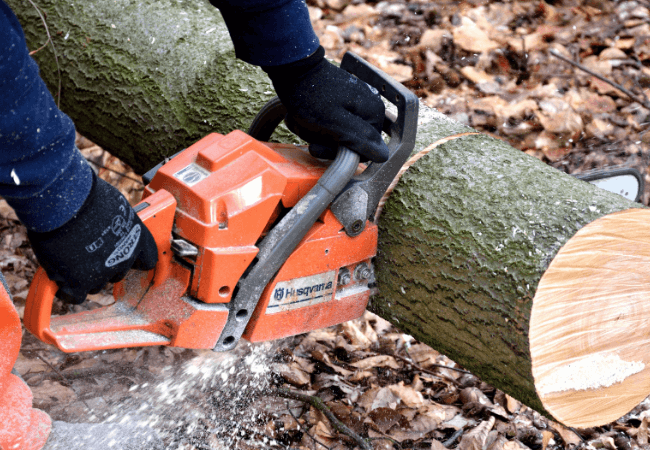
The easy stuff might be gone before you know it.
Or, constantly keep an eye out for nice firewood during your daily travels.
You never know when a strong storm will create some new blowdowns for you to cut up.
Overall - Firewood Permits
If you decide to purchase a permit to use on a piece of public land, please take the time to educate yourself about the rules and requirements.
Call or stop by your local government office and ask them about the laws specific to your state.
If done properly and by the rules, firewood permits can offer a great source of firewood to heat your home at a very affordable price.

About the Author
Obsessed with firewood, Nick is behind over 350+ of Firewood For Life's articles, as well as countless reviews, guides and YouTube videos to help readers like you reduce heating costs and create the perfect fire.


